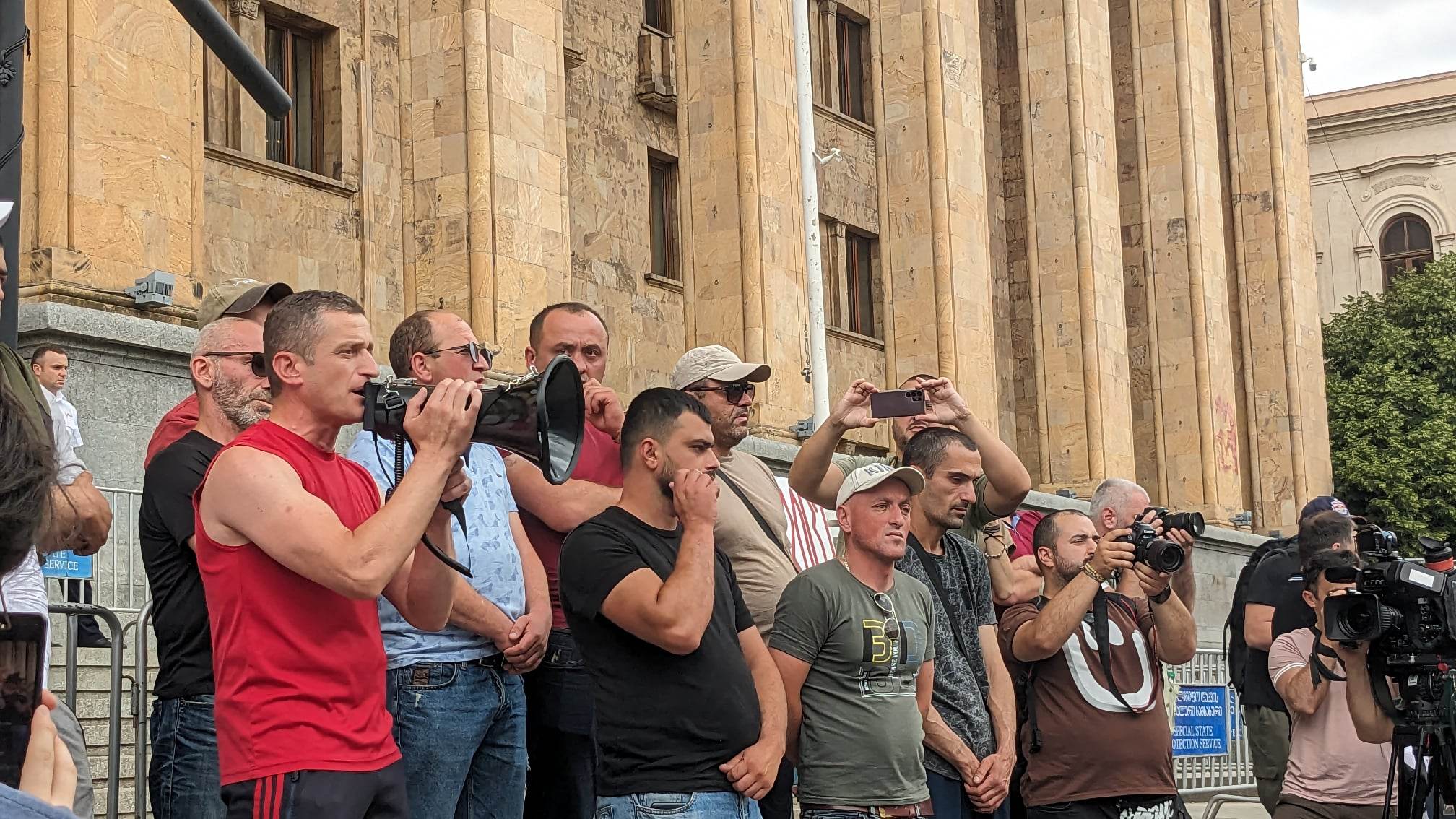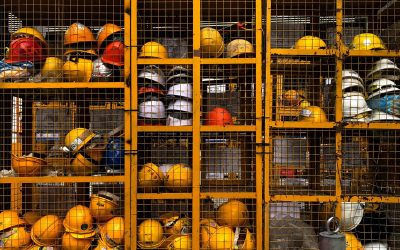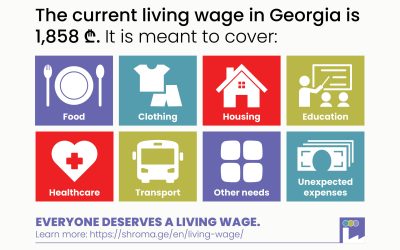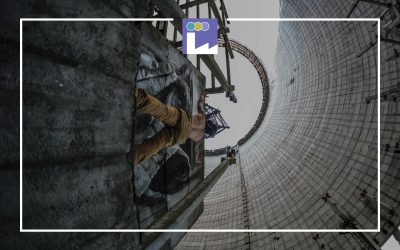Today, on June 19, miners from Chiatura came to Tbilisi and held a protest rally in front of Parliament. The action came after a mediation attempt on June 18 failed. The miners are now resorting to more extreme forms of protest: One miner sewed his eyes shut and another cut his veins. What led the miners to escalate their protest? The following statement from the Social Justice Center, a member organization of the Fair Labor Platform, explains:
The Social Justice Center calls on the state to take immediate measures to meet the just demands of Chiatura miners.
Yesterday, June 18, after a mediation meeting with representatives of the state and the company, the people of Chiatura resorted to more extreme forms of protest. One of the miners had his eyes stitched shut and another worker cut his veins. On June 16, another miner sewed his mouth shut. Another 10 miners have been on a hunger strike for eight days.
The miners, who entered yesterday’s mediation meeting hoping that their basic demands would be met, found that the company and the state were not prepared to consider their plight. Instead, they were again faced with business and state indifference and irresponsibility.
As mentioned in the official statement of the company published after the meeting, the conditions offered by the company to the employees are:
- A return to the old working which existed until February 1, 2023 (with a 12-hour work schedule);
- An initial 5% salary increase, with additional increases coming gradually based on profitability;
- Auditing the company and creating a commission to study improvements;
The workers say the proposal is unacceptable. Below we describe the company’s proposals in further detail and explain why employees remain dissatisfied.
1. Returning to the 12-hour work schedule:
First, it should be underlined that the change of working conditions was a unilateral decision by the company. It was this approach – and the decision to radically worsen safety and pay – that led to the workers’ protest. The company said that it could restore all shifts and mines only if employees agreed to the new work schedule, plan and compensation scheme. However, this plan did not properly take into account the safety, dignity and social condition of miners.
2. 5% increase in wages:
Workers demanded a 40% increase in wages and instead received an offer of a 5%. But the 5% isn’t really a raise: according to the collective agreement signed between the employer and the trade unions, workers were due an automatic raise of 5% at the beginning of 2023. It never happened. In addition, the collective bargaining agreement stipulated that if there was inflation exceeding 5%, the sides were to discuss an additional salary increase beyond 5%. This also did not happen. With inflation pushing 10%, the miners say that a 5% salary increase is unacceptable and unfair.
3. Auditing the company and working together to improve conditions:
Regarding the 14 other demands made by workers, the company’s proposal is to create a joint commission and work together to improve these conditions. [1] This is despite the fact that a majority of those 14 demands concern ongoing violations of the miners’ basic, fundamental labor rights. They include, for example: paid leave, sick leave, improved insurance conditions and salary payment issues. The miners feel these issues need immediate attention.
It is obvious that despite the large-scale organization and protest of the workers, the company does not grasp the importance of their demands.
The miners, who received only 60% of their wages between February and May – after the company introduced a so-called temporary work regime – are desperate financially. Most say they have loans which they need to repay, and cannot do so when the company decides to pay them make 60% of their salary for four months. Some have taken additional loans to cover existing loan payments.
For years, the miners’ daily reality has involved harsh working conditions, indebtedness and social hopelessness. Yet despite several protests and the appointment of a special manager by the state, their situation has not significantly changed. It should also be noted that there are no other alternatives for employment or economic development in Chiatura. The mine is the primary employer in the area. Special emphasis should also be placed on the catastrophic environmental situation that exists in Chiatura because of mining. Miners and their families bear the brunt of this, which they say only adds to their despair.
Finally, the Social Justice Center believes that Georgian Manganese’s claim that they are in a difficult financial situation are unfair. The company has held the valuable manganese mining license in the area since 2007 and has worked the area continuously since then. The recent crisis in the ferroalloys market, which the company points to, cannot justify the fact that for years Chiatura residents have failed to reap their fair share of the benefits that are being extracted from their cities and villages. Instead they get repeated labor violations and severe environmental damage, while the company operates unscathed. The work of the special manager appointed by the state has clearly been ineffective in bringing tangible changes for workers.
Considering the above, we call on the state and the company to once again understand their responsibility to the miners and Chiatura as a whole. They must foster a truly democratic negotiation process and find the resources to immediately meet workers’ demands.
[1] According to the company’s statement, “the commission will study the demands of the employees, their problems and the causes of their occurrence, discuss ways to correct the situation, and learn about the working conditions of the employees and their compliance with established norms.” The commission will also study the old method of organizing the work process and the necessity and economic feasibility of the new work process requested by the company.
Photo: Social Justice Center



